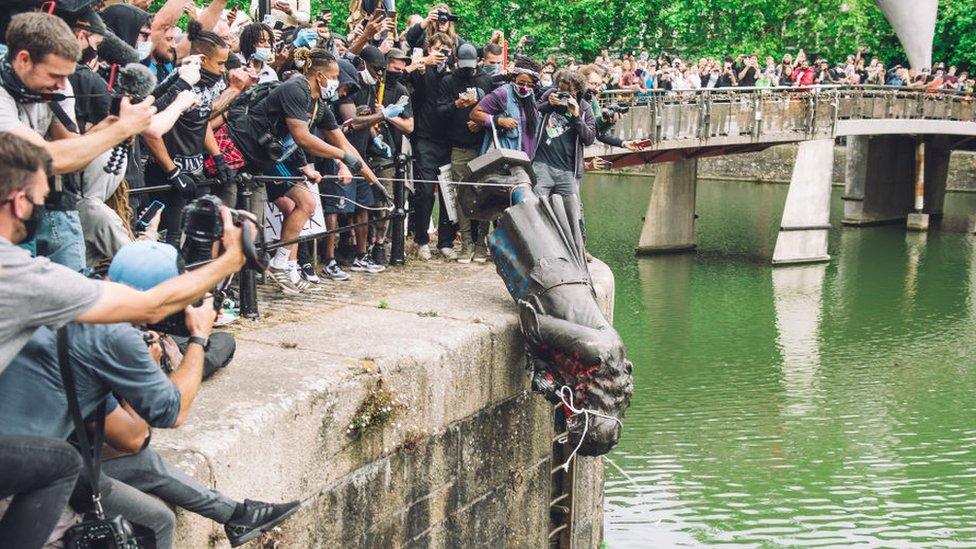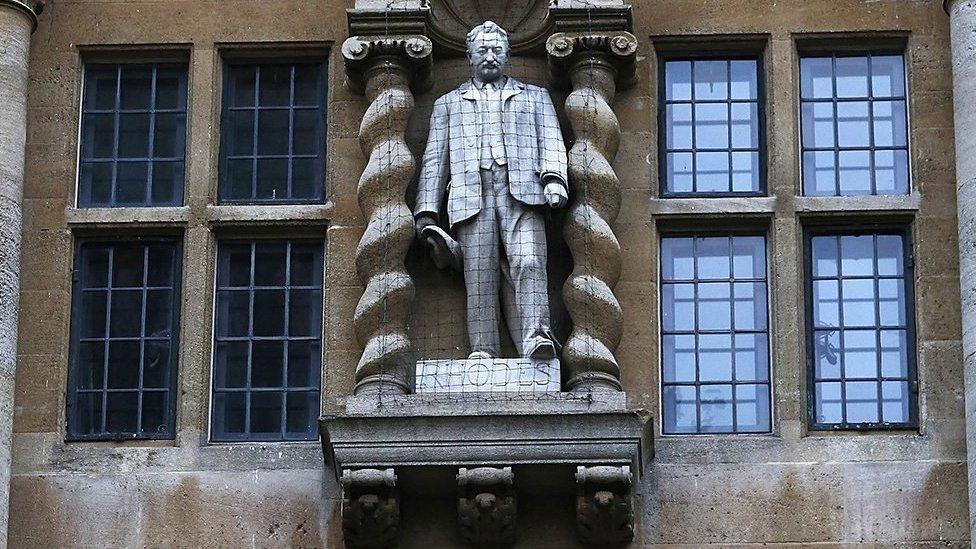UK should 'retain and explain' controversial statues, says minister
- Published

Anti-racism protesters threw the statue of slave trader Edward Colston into Bristol harbour in June
Public statues of controversial historical figures should be "retained and explained" instead of being taken down, the government has said.
Culture Minister Matt Warman told MPs the UK's heritage should not be removed from view "however contentious".
The toppling of slave trader Edward Colston's statue in Bristol in June, during Black Lives Matter protests, led to a fierce debate on the issue.
Mr Warman said statues played a role in "teaching us about the past".
In the government's first official policy statement about the issue, he told the Commons ministers believed in the "right to retain statues however contentious".
A number of memorials to wealthy merchants who profited from the slave trade were removed this summer during a wave of anti-racism protests in the UK sparked by the murder of George Floyd in the US.
A statue of the slave owner and philanthropist Edward Colston was torn down and thrown into Bristol harbour while a monument to Robert Milligan, an 18th Century Scottish merchant, was removed from London's Docklands and taken to a museum.
Other institutions came under pressure to act, with the governing body of Oxford's Oriel College saying it backed the removal of a statue of imperialist Cecil Rhodes from its main building pending a review of its future.
There have been calls for statues of other major historical figures, including Sir Robert Clive and Sir Francis Drake, to be taken down as part of a reappraisal of the UK's colonial history.
Labour-controlled councils across England have been carrying out an audit of statues on their land, while the National Trust recently outlined all its properties' historical links to the Atlantic slave trade and British Empire.

The statue of Cecil Rhodes in Oxford will stay in place until a review group reports back next year
Speaking in the House of Commons in an adjournment debate about statues, Mr Warman said he wanted organisations to "retain and explain not remove our heritage".
Whilst individuals such as Colston or Rhodes may have "said or done things we may find deeply offensive", he said they played an important role in teaching us about a past "with all its faults".
"We should seek to contextualise or reinterpret them in a way that enables to public to learn about them in their entirety," he added.
Following a recent row over the playing of patriotic songs at the Last Night of the Proms, Boris Johnson said it was time the UK "stopped our cringing embarrassment about our history".